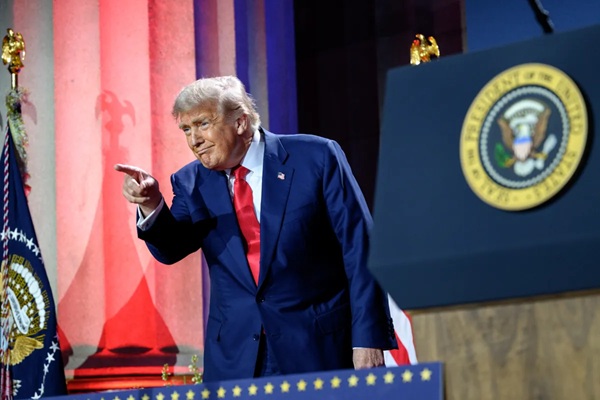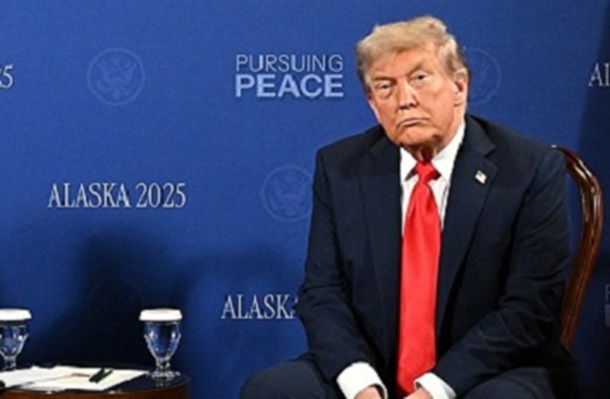.png)
Tata Trust Crisis: Silence Is Not a Strategy
A silence this loud can be deafening. As factional rifts shake the Tata Trusts, the Group’s famed moral halo is being tested fully by questions of both ownership and governance it cannot ignore.


By Minari Shah
Minari Shah is a strategic communications leader who has helped Fortune 500 brands, such as Amazon, Tata Motors and Dell, build trust through storytelling.
October 11, 2025 at 2:26 PM IST
It is rarely a good sign when government ministers call urgent meetings with corporate leaders. The October 8 meeting between Tata Group executives, and Union Home Minister Amit Shah and Finance Minister Nirmala Sitharaman set off alarm bells across the industry for setting a dangerous precedent. In the meantime, there is a deafening silence from the Tata Group, leading to unchecked speculation that threatens its carefully cultivated reputation.
Few Indian institutions command the instinctive trust that the Tata Group does. A key factor for the halo is undoubtedly the unique feature that the Group promoter is not a family or a fund but philanthropic trusts (that own 66% of the Tata Sons, the holding company for the various Group enterprises). Through most of their history (with significant exceptions), the Trusts are not known to have interfered in the day-to-day aspects of business strategy and operations. Their mandate has been social good rather than shareholder value; but the ongoing crisis has sharply spotlighted they are effectively the power behind the throne, with the clout to determine leadership, strategy and long-term direction of all Tata companies. Riven now with disagreements, the opaqueness highlighted, there is an issue not just about how decisions are made but about who truly owns and wields the power.
The dispute centres on a factional split among trustees following a September 11 meeting where four trustees voted against the reappointment of former Defence Secretary Vijay Singh to the Tata Sons board. What emerged is a stark divide: Trusts Chairman Noel Tata and Vice Chairman Venu Srinivasan on one side, and a bloc of four trustees led by Mehli Mistry on the other. Reports suggest a "super board" of four trustees is undermining Noel Tata's leadership, including the big question of whether Tata Sons, the holding group, should go public. The issue of course has laid bare the simmering undercurrents from way back in 2016, when the infamous Ratan Tata-Cyrus Mistry rupture dented Tata’s aura.
The stakeholders deserve more than radio silence. It cannot be brushed away by deeming this an “internal matter”.
Should Tata Sons have taken the matter to government?
Two, there is the nuance of updating the government versus inviting political mediation. The Tatas have usually been seen as independent of state patronage or political favour, so this undermines the Trusts’ autonomy while signalling that India’s largest private group is struggling to resolve internal issues without external intervention. It could have announced (and implemented) an independent governance review under a credible neutral lead, briefing the government and regulators on the process and the outcome. Engagement, not intervention, should have been the guiding principle.
What must be done now?
- Acknowledge the issue with dignity and clarity. Confirm that governance reforms are being accelerated, not denied.
- Immediate implementation of clearer governance protocols for trustee appointments and board nominations, removing ambiguity that festers factional disputes.
- An independent governance review by external experts to recommend structural reforms.
- Regular updates to reassure the stakeholders — government and regulatory bodies, employees, investors and shareholders, financial institutions, and customers — that the operations and strategy remain unaffected.
- Reaffirmation of the group's values and philanthropic mission, reminding all parties why the Tata Trusts exist
The Tata Group faces a choice: continue the opacity that may have served different times but fails modern stakeholder expectations, or embrace transparency that demonstrates leadership equal to the challenges.
Mulally’s stewardship during the Ford crisis in 2006 offers a strong playbook for how openness and transparency from the leadership earns trust. As Mulally did back then, there is an opportunity for the leadership to own this crisis with transparency to turn it into a governance benchmark.
But there is also now a trillion-dollar question: Can a philanthropic body act as an effective promoter for a commercial conglomerate?
Tata Trusts have enjoyed not just rightful ownership (legal right) but the moral authority for the power it wields. But that same architecture now risks turning into its Achilles’ heel. It’s not just about questions on robust governance rather than just a dependence on collective conscience. But that the legitimacy could be threatened with a slow-burning ownership confidence crisis that could invite regulatory scrutiny and investor activism, not least because the continuing overhang of the Shapoorji Pallonji stake.
Eventually, the actions for the company must go beyond governance to reaffirm the ownership legitimacy, to re-anchor the Group’s reputation for transparency, responsibility and purpose. The crisis isn't just about who sits on which board but about who actually owns the right to make that decision.
The tragic irony could be that the very model that differentiated Tata — selfless trusteeship over selfish ownership — now threatens its stability.



